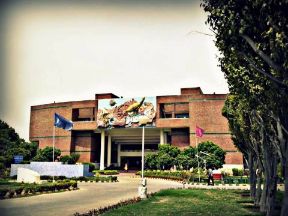
- Home
-
About Us
One of India's most reputed University in the domain of technical education, NSUT has carved a niche for itself - both nationally and internationally - for excellence in education and research. The overall environment in the University is highly conducive for growth and provides a quality learning atmosphere.

-
Administration
- Chancellor, NSUT
- Vice Chancellor's Profile
- Former VC's
- Former Directors
- Director - East Campus
- Director - West Campus
- List of Deans
- Registrar's Profile
- Controller of Examination
- Controller of Finance
- Members of Court
- Board of Management
- The Senate
- Finance Committee
- Ombudsman
- Act, Statutes, Ordinances
- Forms And Formats
- Seniority Lists
- Incentives
- Minutes of Meetings
- Academics
- Admissions
- Alumni
-
Media
Find NSUT related news published in various media sources, and photo gallery here.

-
Life at NSUT
NSUT has a beautifully landscaped and fully residential campus, sprawling 145 acres of land. A prominent feature of NSUT’s campus is the vast expanse of flora & fauna that envelopes its entirety. The campus welcomes a diverse community of students, faculty, staff & visitors in its midst. Extra-curricular activities thrive at NSUT, giving students a chance to further indulge in their interests.

- For Students
- For Faculty
- Resources
- Research
- Committees